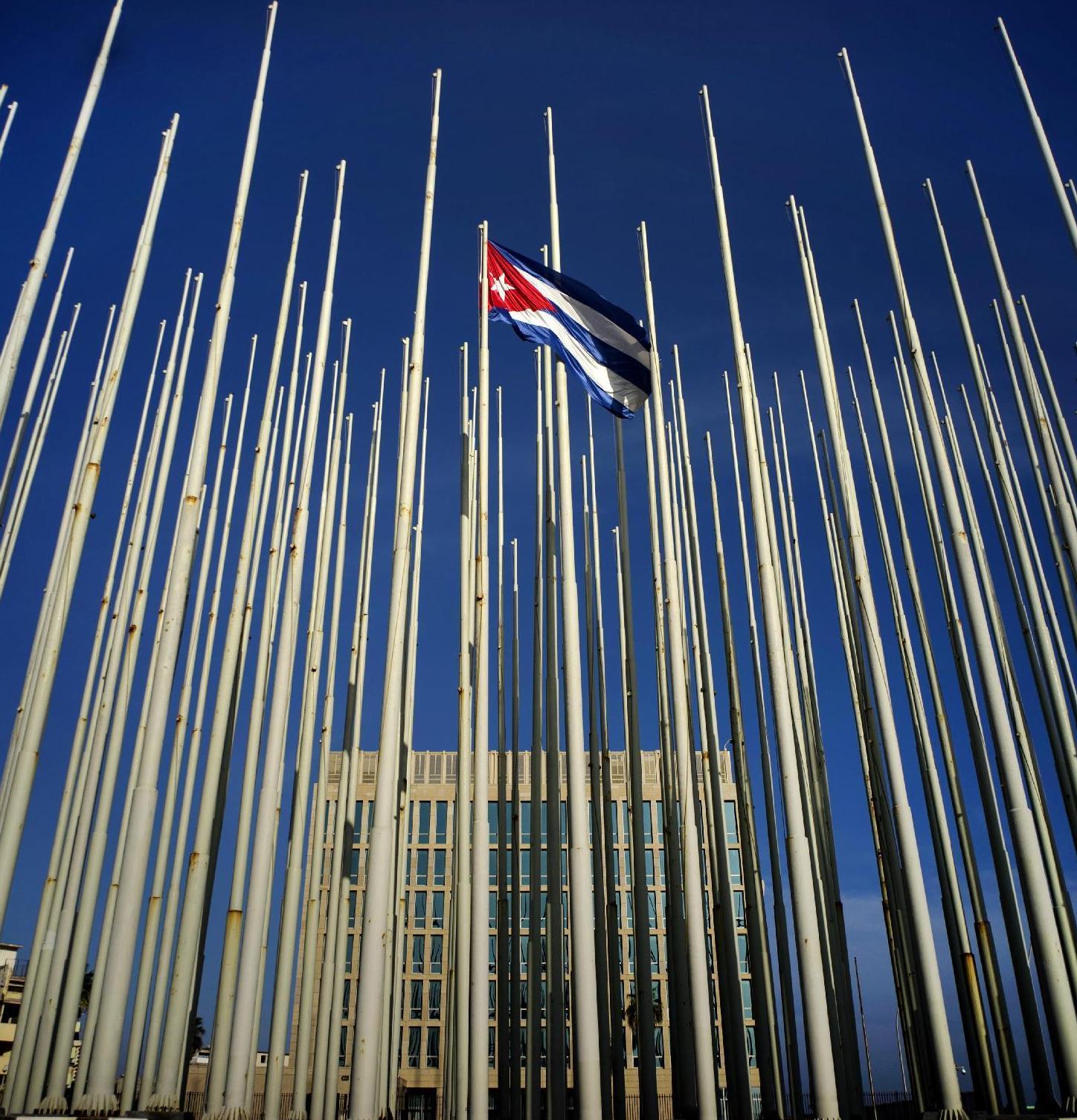U.S. and Cuba restore full diplomatic ties after five decades
More than a half century of Cold War and lingering enmity came to an abrupt but quiet end on Monday as the United States and Cuba restored full diplomatic relations. The new era began with little fanfare when an agreement between the two nations to resume normal ties on July 20 came into force just after midnight Sunday and the diplomatic missions of each country were upgraded from interests sections to embassies. When clocks struck 12:00 in Washington and Havana, they tolled a knell for policy approaches spawned and hardened over the five decades since President John F. Kennedy first tangled with youthful revolutionary Fidel Castro over Soviet expansion in the Americas.
It’s a historic moment. The significance of opening the embassies is that trust and respect that you can see, both sides treating the other with trust and respect.
Longtime Cuban diplomat and analyst Carlos Alzugaray.
Without ceremony in the pre-dawn hours, maintenance workers were to hang the Cuban flag in the lobby of the State Department alongside those of other nations with which the U.S. has diplomatic relations. The historic shift will be publicly memorialized when Cuban officials formally inaugurate their embassy in Washington and Cuba’s blue, red and white-starred flag will fly for the first time since the countries severed ties in 1961. Secretary of State John Kerry will meet his Cuban counterpart, Bruno Rodriguez, and address reporters at a joint news conference. The U.S. Interests Section in Havana plans to announce its upgrade to embassy status in a written statement on Monday, but the Stars and Stripes will not fly at the mission until Kerry visits in August for a ceremonial flag-raising. The Cuban Interests Section in Washington switched its Twitter account to say “embassy,” one of a series of similar changes being made to the two country’s social media accounts.
That doesn’t mean there aren’t going to be conflicts — there are bound to be conflicts — but the way that you treat the conflict has completely changed.
Longtime Cuban diplomat and analyst Carlos Alzugaray.

World Cuba